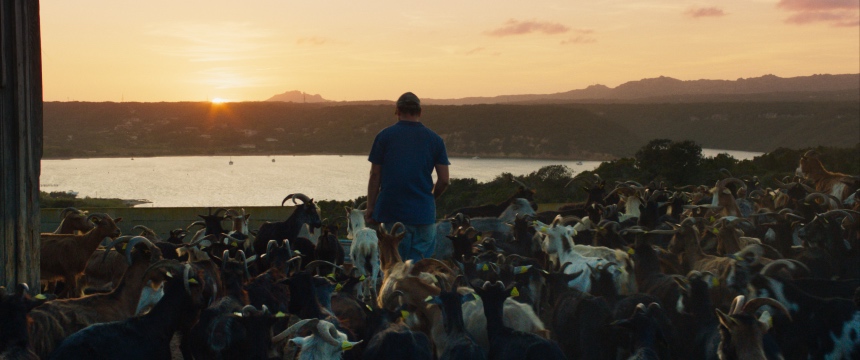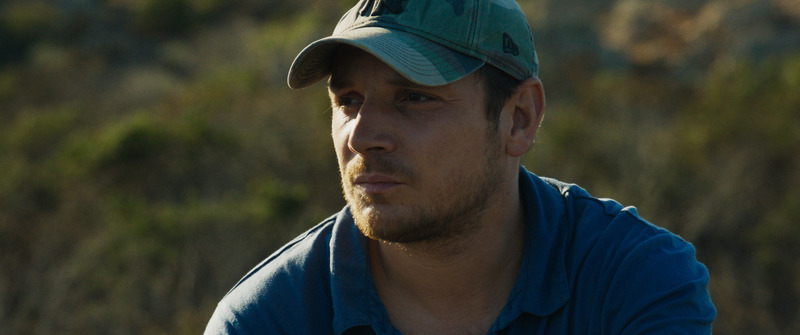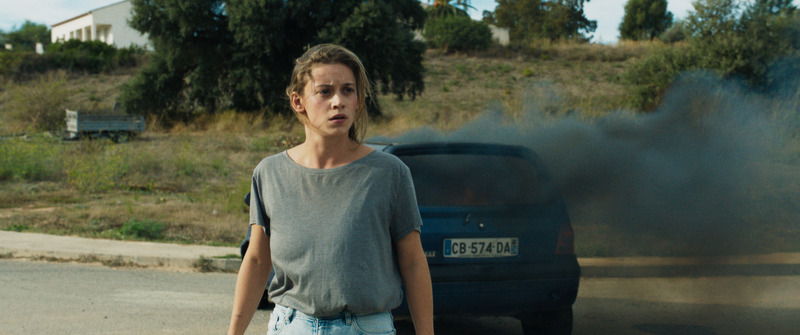Venice 2024 Review: THE MOHICAN, Quiet Battle Between Tradition and Corruption
Frédéric Farrucci sophomore feature blends neo-Western elements with social issues exploring land exploitation, identity, and resistance.

French filmmaker Frédéric Farrucci delivers an unflinching exploration of modern-day Corsica in The Mohican, blending elements of neo-Western cinema with the political tensions of land exploitation. The film serves as both a personal survival story and an allegory of resistance, with the landscape becoming a battleground where tradition confronts corruption.
At the heart of The Mohican is Joseph Cardelli (Alexis Manenti), one of the last remaining goatherds on the Corsican coast. Joseph’s land is coveted by local mafia figures eager to transform the picturesque coastline into luxury real estate. While the surrounding properties have already fallen into their grasp, Joseph remains the last holdout, though the mafia’s patience is wearing thin.
Initially, the pressure on Joseph comes in the form of seemingly polite, though persistent, offers to sell his land. When he refuses, the tone shifts, and the once amicable negotiations are replaced by more overt threats.
Farrucci deliberately stages the confrontation off-camera, building tension through implication rather than explicit violence. However, Joseph’s refusal and mishandled gun eventually forces him into a desperate flight, setting the stage for a cat-and-mouse chase through Corsica’s rugged terrain.
What begins as a pastoral social drama transforms into a suspenseful thriller, evoking echoes of The Fugitive, albeit with a distinctly Western flavor. Joseph’s frantic escape across the island upends the idyllic image of Corsica, exposing an undercurrent of violence that contrasts sharply with the holidaying French tourists who remain oblivious to the chaos.
As the pursuit intensifies, Joseph is drawn deeper into conflict, enlisting the help of an old friend and finding himself increasingly entangled with local criminal elements. The involvement of Joseph’s family—particularly his niece, Vannina (Mara Taquin)—introduces a generational dynamic to the narrative. Vannina, part of a younger, more socially conscious generation, takes to social media to broadcast her uncle’s plight, transforming Joseph into a reluctant symbol of resistance.
The film shifts from personal survival to something more collective, as Joseph’s defiance becomes emblematic of broader struggles against exploitation. This theme of resistance runs through Farrucci’s previous work Night Ride, where he examined the exploitation of gig workers in urban Paris. In The Mohican, he extends this critique of power to the rural outskirts of Corsica, suggesting that no place, however remote, is untouched by the forces of capital and corruption.
Farrucci’s ability to blend genre with social commentary is a defining feature of his work. In The Mohican, he merges Western and crime thriller to explore issues of land, identity, and resistance, drawing attention to how these themes play out across generations.
Jeanne Lapoirie’s cinematography captures the duality of Corsica’s natural beauty and its latent tension. The vast, sun-soaked coastline becomes both a sanctuary and a prison for Joseph, with the oppressive heat reflecting the mounting pressure he faces.
The film’s minimalist narrative structure emphasizes the psychological toll of Joseph’s resistance, focusing on the slow, grinding impact of his refusal to capitulate. As he continues to evade capture, his defiance takes on mythic proportions, turning him into a folk hero for those disillusioned with the encroaching forces of corruption.
His niece’s activism amplifies this transformation, using social media to galvanize support and turning him into a legend overnight. Farrucci's willingness to embrace genres to tackle a social issue results into an intriuging gerne fare, or so-called arthouse elevated genre.
Le Mohican
Director(s)
- Frédéric Farrucci
Cast
- Alexis Manenti
- Mara Taquin









